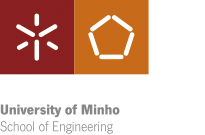Description
The general objectives of the master's course are to provide a 2nd cycle training in Engineering with a specialization in Telecommunications and Informatics, which complements a 1st cycle training in the same area.
Generically, it is intended to train masters who can understand in depth the operation of telecommunications systems, in their different levels of conceptualization and implementation, and who are able to specify, design, develop, implement, operate and maintain telecommunications systems.
A specialized training profile with solid R&D, communication and scientific dissemination skills, in the areas of network management and virtualization, digital communications and systems, access and core networks, network services and multimedia applications, network emulation and simulation, routing traffic, vehicular networks, mobile computing, IoT, implementation of RF systems, machine learning, information retrieval, knowledge representation, and reasoning.
Key learning outcomes
The master should be able to:
1. understand in depth the operation of telecommunications systems;
2. specify, design, implement, operate and maintain telecommunications systems;
3. understand the principles of digital communications, modulation techniques, error control, OFDM systems, and spectral spreading;
4. understand the access and core network architectures, digital transmission systems and the principles of multiplexing and switching;
5. identify and apply the appropriate paradigm for the management of distributed networks, services and applications;
6. understand network virtualization functions and software-defined networks;
7. apply information theory concepts in the digitization, encoding, and compression of multimedia data, choosing and applying the appropriate technologies for the processing, storage and distribution of multimedia data;
8. understand the differences in emulation and simulation and their importance in testing and design of new protocols and technologies.
Access to higher education
The Master in Telecommunications and Informatics Engineering is complemented in terms of UMinho's educational offer with a doctoral program in Telecommunications (MAPTele), a joint program of the universities of Minho, Porto and Aveiro, but also other doctoral programs in related areas such as Informatics, Electronics and Computers and Information Systems.
Careers
According to his profile, a master in Telecommunications and Informatics Engineering will be able to perform the functions required by:
i) Telecommunications operators - in the specification, design, operation and maintenance of telecommunications systems, infrastructures and services;
ii) Service Providers - in the specification, design, operation and maintenance of services for telecommunications and computer networks;
iii) Content Providers - in the specification, design, operation and maintenance of content (information) and computer applications to support access and availability of content;
iv) Companies with IT sector - in the specification, design, operation and maintenance of computer networks and network services;
v) R&D companies - in the research and development of new communications systems.

